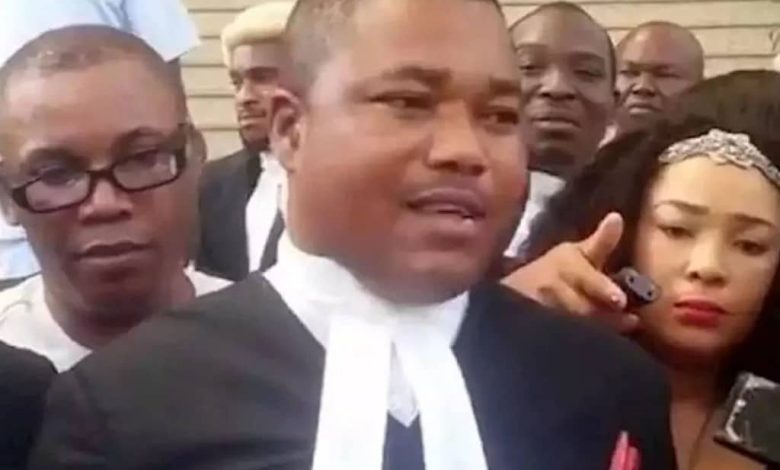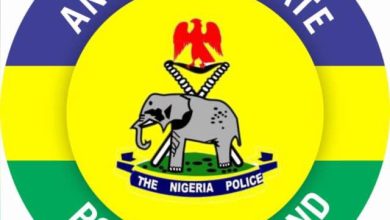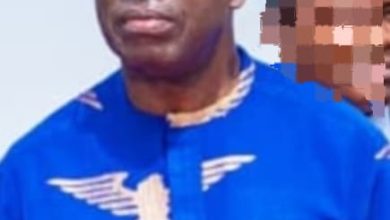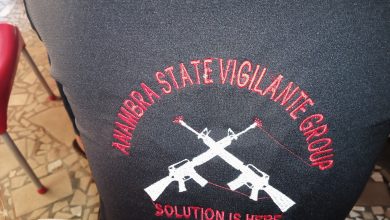
Barr Ifeanyi Ejiofor, lead counsel to the Indigenous People of Biafra (IPOB) and a renowned human rights lawyer, has voiced deep concern over the growing insecurity in the South-East.
He attributed it primarily to internal failings rather than external aggression.
In a strongly worded statement released on Friday, titled “Friday Meditation: Ala Igbo is Bleeding, and Its Wounds Are Largely Self-Inflicted – ‘Kidnap of Okwuluora in Focus'”, Ejiofor lamented the rising wave of kidnapping, violent crime, and moral decay perpetrated by the Igbo against their own.
According to him, the Igbo have spent years blaming external aggressors and historical enemies for their predicament, but the most pressing threat now lies within.
“Today, the most urgent enemy resides among Ndi Igbo—and sometimes, within us.”
Ejiofor condemned in strong terms the recent abduction of Mr. Emmanuel Onyeka Okoh, popularly known as Okwuluora, a respected social critic and prominent son of Enugu State. Okwuluora was reportedly kidnapped in Umuaka, Orlu Local Government Area of Imo State by individuals who share the same language, culture, and heritage a situation Ejiofor described as the height of moral degeneration.
“This was not a random act of criminality. It was a symbolic tragedy,an open wound that exposes the deep moral and social fractures within Ala Igbo.”he lamented.
Ejiofor pointed to the chilling irony of Okwuluora’s near-death experience at the hands of fellow Igbo men, stating that it confirms what many have long suspected, a dangerous faction within the Igbo community has turned the region into a lawless hunting ground, desecrating its sacred spaces and eroding its core values in pursuit of greed and anarchy.
“Make no mistake. Imo State is bleeding. Ala Igbo is bleeding. And the wounds are no longer from external blows. They are self-inflicted cut deep by betrayal, silence, fear, and complicity”he added.
Perhaps most troubling, Ejiofor noted, is that Okwuluora’s abduction occurred mere meters away from a military and police checkpoint, raising serious concerns about the role or absence of security forces in protecting citizens.
Ejiofor called for urgent introspection and collective action to address the internal rot threatening to destroy the soul of Ala Igbo, warning that continued silence will only deepen the crisis.
The statement reads:
Some moments jolt the conscience of a people, moments that refuse to be ignored, moments that force a nation to look itself in the mirror.
One such moment is the chilling ordeal of Okwuluora, the respected social critic and voice of conscience, who was recently abducted in Umuaka, Orlu Local Government Area of Imo State.
But this was no random abduction. It was a symbolic tragedy, a revealing crack in the very soul of Ala Igbo.
Okwuluora was not taken by strangers. He was not a victim of foreign invaders. He was kidnapped, blindfolded, tortured, and nearly executed by his own people; men who spoke his language, knew his background, and shared his roots.
And perhaps the most horrifying part? His captivity occurred only a few meters away from a military and police checkpoint.
How did we get here?
How did a land once famed for its unity, industry, and resilience descend to this level of internal rot, where fear now reigns and terror is homemade?
We have spent too many years blaming external aggressors and distant enemies. But today, the most urgent enemy resides among us, and sometimes, within us.
Okwuluora’s near-death experience confirms what many have quietly suspected:
That a faction of our own kith and kin have turned Ala Igbo into a hunting ground, desecrating its sacred spaces and sacrificing our communal peace on the altar of greed, anarchy, and lawlessness.
Today, entire communities in Imo State live under siege.
Markets are silenced.
Traditional rulers are driven underground.
Young men, once the pride of their clans, now morph into nightmarish militias.
And all this unfolds under the passive gaze, or perhaps complicit nod, of those sworn to uphold security and order.
Make no mistake: Imo State is bleeding. Ala Igbo is bleeding.
And the wounds are no longer from external blows.
They are self-inflicted, cut deep by betrayal, silence, fear, and complicity.
But this is not the first time our land has groaned under the weight of anguish.
In the wake of the 1966 pogroms, Ndigbo fled the North in droves, carrying nothing but their dignity and the bones of their dead.
They came home, and from the ashes, birthed Biafra: a defiant declaration of self-worth.
Though crushed by war, the Igbo spirit endured. We rebuilt. We thrived.
But now, what war failed to destroy, internal decay threatens to finish.
So we must ask:
Where is that same spirit of unity and defiance?
What happened to the moral spine that refused to bow in the face of injustice?
How did we go from guardians of our homeland to architects of its ruin?
Okwuluora’s story is not isolated. It is a warning, a prophecy in real time.
If we do not confront this rot from within…
If we do not rise to cleanse our land…
Then our silence shall one day be judged as betrayal.
This is a call, not to bitterness, not to blame, but to awakening.
To truth.
To courage.
To self-redemption.
Let this Friday serve as a sacred pause in our weekly race; a moment to reflect, to repent, and to resolve.
For indeed, Ala Igbo is bleeding.
But where there is life, there is hope.
And where there is unity, there is healing.
As we step into this new month of August, may the God of our ancestors arise for Ala Igbo.
May He restore peace in our land.
May every agent of bloodshed and destruction be exposed, uprooted, and judged.
May our land, once soaked in the tears of the innocent, become again a fountain of prosperity, dignity, and unity.
May the coming days be filled with divine preservation, clarity of purpose, and the courage to speak truth, even when it is costly, Amen.




